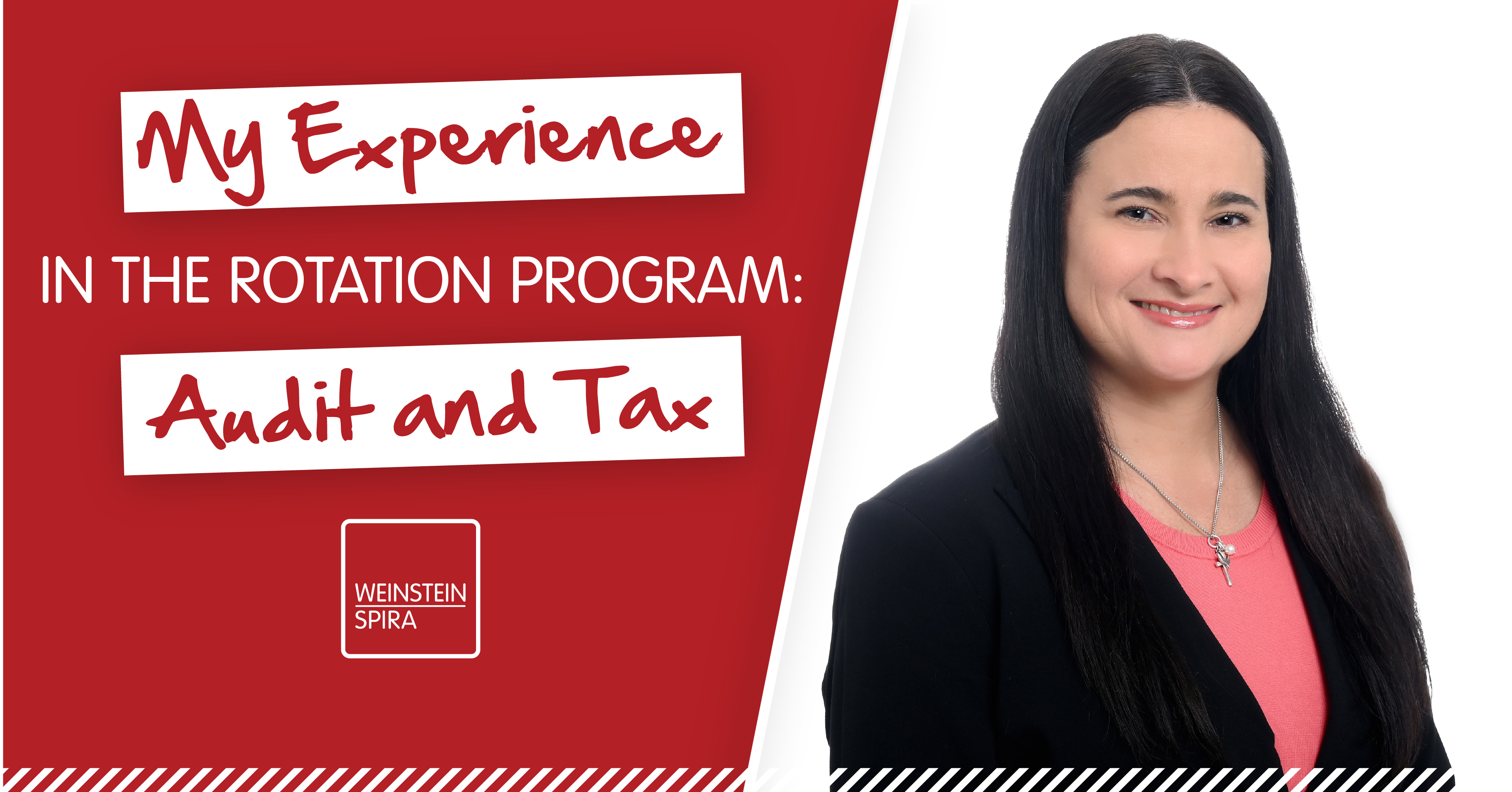One of my favorite work responsibilities is visiting college campuses, like Texas A&M, to recruit new grads to work at Weinstein Spira. I often present a slide show to students that depicts things to know when charting a career path in accounting. These are the very things no one told me when I was starting out, and I wish they had, rather than going through trial and error.
WHAT ARE YOUR JOB OPTIONS?
I’m a big nerd, so while still in college I took assessments, pored through career center binders and researched any/all statistics about becoming an accountant—from job stability to flexibility. What I discovered was accounting does offer great job stability and the flexibility I knew I would need if I wanted to marry and raise a family someday. For me, it was a conscious, educated decision and I went into my field of choice knowing a lot about it. However, what was missing was how to decide where to work. As accounting majors at Texas A&M, we were automatically told to submit job applications to the Big 4 accounting firms (PwC, Deloitte, Ernst & Young and KPMG). But, what about other options? And how about the pros and cons? This information was nowhere to be found.
I now know there are primarily three different types of accounting jobs you can go after: 1) the Big 4 accounting firms; 2) mid-market accounting firms; and 3) industry jobs (for example, the in-house Accounting department at Exxon). It just so happens, I have had the good fortune to work in all three arenas (going from a position in Big 4, to industry, to Weinstein Spira) and learned first-hand what each career path has to offer. So, here are some lessons learned to fill in the gaps.
PROS AND CONS
Big 4 Firms
Pros: With tiered chains of command in such big firms, you do benefit from reporting to different people, who are good at certain things, allowing you to draw upon their various strengths, rather than being limited by one boss.
Cons: Because they are so big, these companies are structured by areas of practice with distinct departments, and within there are even more granular groups. For example, Tax Accounting may be split into Corporate Tax, Foreign Tax, Estate Tax, etc. While you gain deep knowledge from your assigned group’s expertise, you lack exposure to how each of these areas are interconnected.
Mid-Market Accounting Firms
Pros: Because these firms are smaller, you touch a lot more areas of accounting. This allows you to have a better understanding of the big picture and how everything is interrelated. The diversity prepares you for many kinds of accounting jobs in the future. Therefore, it’s a great place to build a strong knowledge base. You also benefit from the previously mentioned tiered changes of command.
Cons: In mid-market, you become a “Jack of all Trades.” Staying on top of the various different accounting, tax and law changes can be challenging. In order to be successful at this, you have to be continually learning and researching.
Industry Jobs
Pros: Depending on the company size, there is an opportunity to learn about a broad scope of accounting activities, ranging from local, to federal, to international tax. An industry job is also a good place to begin to learn about the inner workings of a company.
Cons: Working for one company positioned in a particular industry is limiting with exposure to just those accounting transactions unique to that type of business. There also tends to be a linear reporting structure, which can leave you having to fill the void yourself if your boss lacks certain knowledge.
SUMMARY
In summary, there is no one-size-fits-all solution for launching your career in accounting. We all have to find our own path. I would suggest doing an internship in the different types of work environments. This will allow you to have a better idea of what your career would look like at Big 4 versus mid-market or industry settings. But if you know right off the bat what drives you, then go for it! I hope you will consider the pros and cons shared, and then make a decision that’s best for you. Just remember, you DO have options.



